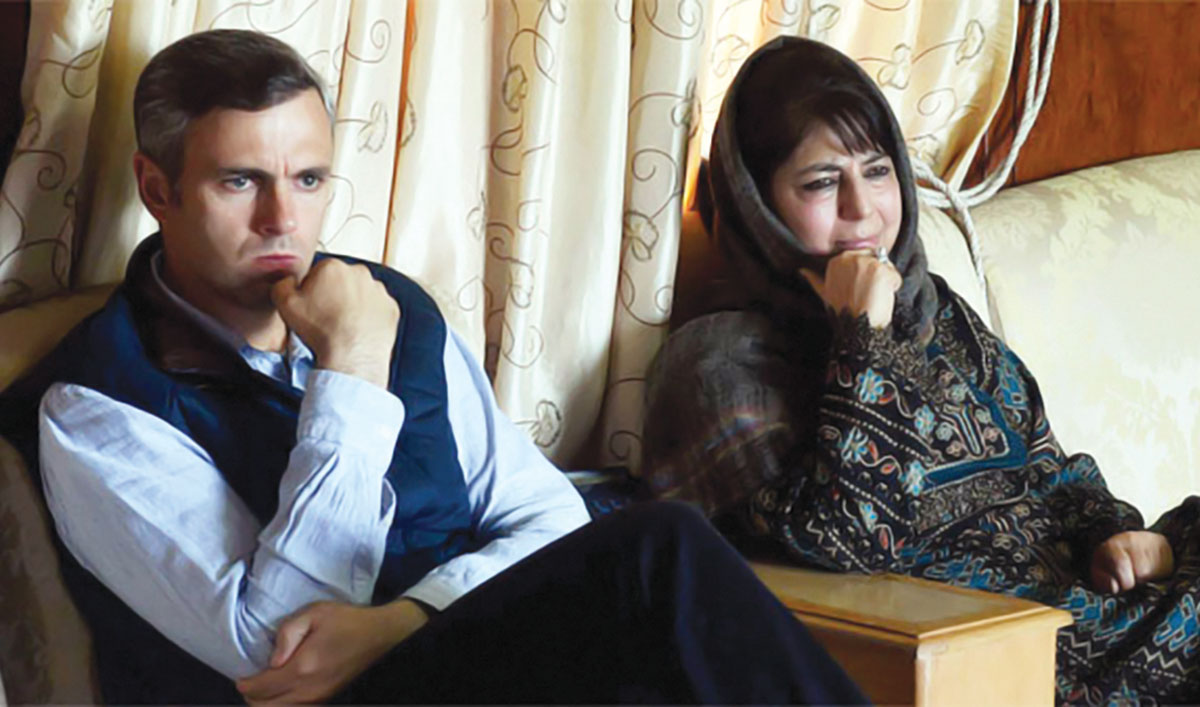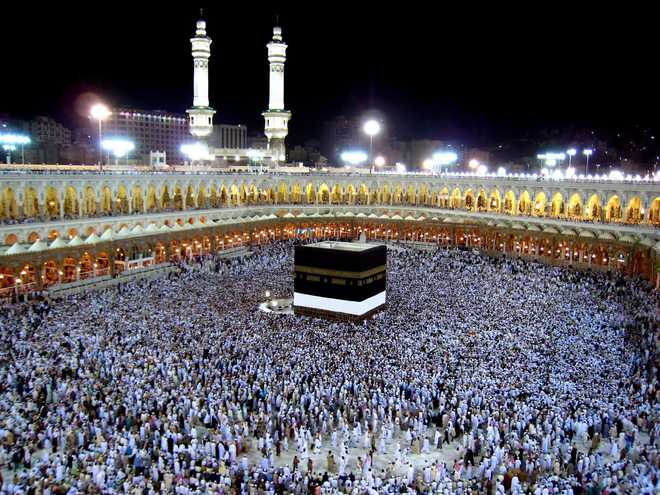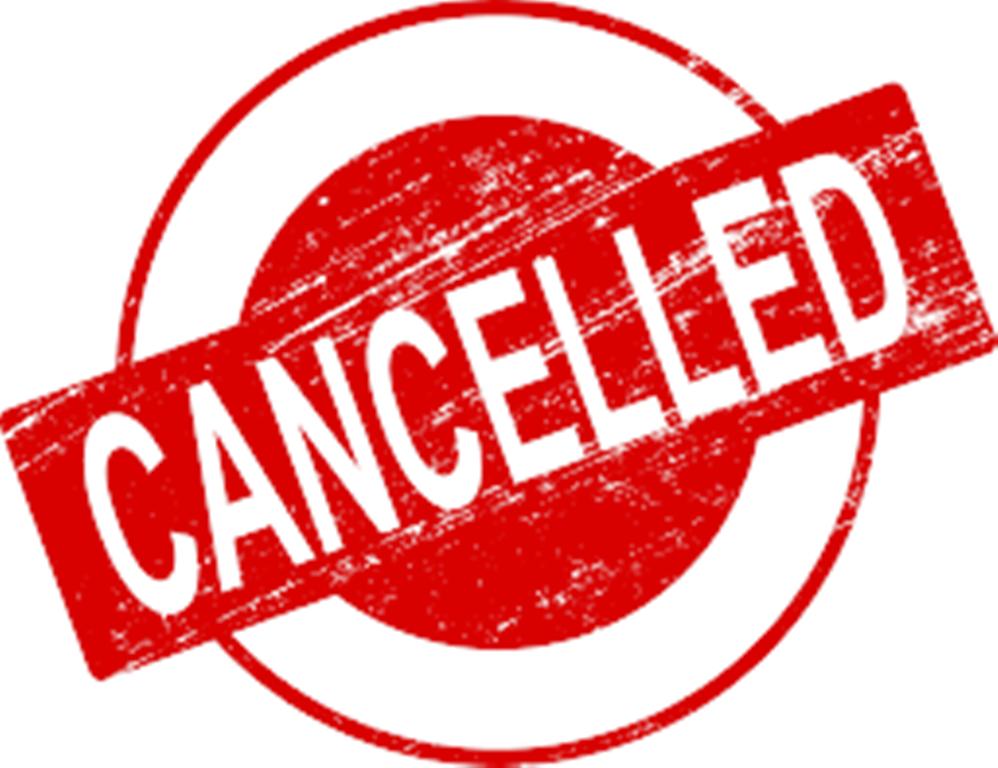Given the power, an elected enjoys, the elections across the world are a cut-throat race that involves everything from mudslinging to scandalising people. For the first time, the Srinagar Lok Sabha contest saw two young men fighting on almost the same issues decently, writes Khalid Bashir Gura

“Kashmiris, after years of silence, have boldly spoken out through their votes for the first time – to break the cycle of silence and to reclaim voice. Congratulations @RuhullahMehdisb, Er Rashid sb & Mia Altafsb on their victory,” People’s Democratic Party (PDP) candidate from Srinagar constituency Waheed-ur-Rehman Parra, after losing an election and accepting defeat wrote in a post on X. He congratulated his opponent, the JKNC’s Syed Agha Ruhullah Mehdi.
In a rare display of ‘sportsmanship’ in politics, after the electoral turf war ended, the two leading candidates who contested Lok Sabha first time set a new precedent in Kashmir politics. Trading of barbs and muckraking between political opponents has remained a routine. However, the young duo debutants for the Srinagar berth were keen to emerge as an exception.
“Dear Waheed, thank you for your participation in the process of making our voices heard democratically. It was a decent competition and I thank you for that. I wish you all the best for your future political endeavours,” Agha responded in a retweet.
This online conversation and symbiotic accommodation post-results won the hearts of many netizens and was lauded widely. “It is a political discourse with grace and civility,” said Dr Suneem Khan, one of the social media users. “That is what was missing.” There were many more who termed the conversation and mutual tolerance as a “magnanimous display of humility and humble attitude”.
“In their election campaign, it was refreshing to see both Ruhullah Mehdi and Waheed Parra talking about issues, from preserving ethnic and cultural identities, breaking the cycle of silence, fighting fear to dignity, dialogue and diversity,” said Gowhar Geelani, a journalist and author. They didn’t talk to each other. “They talked to each other and also spoke to audiences (voters) in an empathetic manner. Yes, in the region’s electoral politics, it is a welcome change.”
Many young voters share a mutual admiration for party leaders, especially Agha.
Contrasting Campaign
“The campaign was about issues. We did not want to slander and waste energy in unleashing vitriol campaigns against each other. The verdict is acceptable to me. Now Aga Ruhullah Mehdi is representing us all and he is a good candidate,” said Parra, insisting both of them wanted to rise above petty divisions and differences, a process, he believes, is more important than winning. “There is no point in casting aspersions on each other when we have lost everything. Both of us were seeking to vote for voice as pain and suffering has to be addressed.”
Parra believes that one’s political character is always scrutinised and how we behave publicly as representatives is also important to set a precedent.
“We did not say anything against them because we do not want to send the message to people that we are fighting with each other,” Parra said, as according to him, “the people are not willing to subscribe to infighting narrative as they want to focus on Delhi and Srinagar, BJP and Kashmiris,” he said.
“I did not want the hurdles of conventional campaigning and protocols to prevent me from reaching to people and listening to them. The campaigning style and discourse were issues centric,” Parra asserted. Following this, in a rare display of political bonhomie, the duo candidates accommodated and listened to each other during campaigning interaction with a journalist.
At a time when politics was about washing each other’s dirty linen in public, it was different that two political opponents were seeing eye-to-eye and fighting for the same issues without peddling a narrative against each other.
Their campaign focused on the adverse fallout of reading down Article 370 and the subsequent developments. Besides “coercing people into accepting the decision”, the duo highlighted the assault on the collective identity and dignity of Kashmiris besides sustained disempowerment since 2019.
Even though their party honchos hurled annoying barbs, and labelled and vilified each other in other constituencies, the duo exercised refrain.
His political opponent Agha Ruhullah agreed with his opponent, admitting the ‘fear psychosis’ that was created after the reading down of Article 370. “If you are a genuine fellow citizen there is no scope for disagreeing as both of us live in the same oppressed society,” Agha said. “We have the same feelings as well and reflections on events and happenings.”
PAGD Division
In the follow-up to the August 5, decision-making, the PAGD was constituted to reclaim the lost special status. The loose alliance had fallen apart before but days ahead of Lok Sabha elections, the disagreements over seat sharing resulted in its collapse. There were sharp differences over this issue between these two contestants.
“We had forewarned them (PDP) not to ally with BJP in 2014 as we were ready to support them but they did not pay heed. Now they are suffering consequences,” Agha said as it was the first initiative to connect and keep BJP at bay. It was this decision that put Kashmir’s “dignity and collective existence” under threat, a challenge for which PAGD came into being. “There may be reasons that foreign elements may have influenced, compelled to break unity. But we need to introspection and focus on the greater goal.”
On his part, Parra believes Agha is personally dissatisfied with his party’s position as they distanced themselves from the PAGD. He criticised JKNC for the failure of its three MPs in raising the concerns of Kashmiris in the past five years in the Parliament. Unlike other leaders including from JKNC, whose freedom came at the cost of signing bonds post-August 5, Agha was free and vocal giving fierce statements.
“It is a forced bond. We demand the restoration of special status. We want to challenge state and status, behaviour and betrayal,” Agha, now MP said exhorting on self-governance. Parra also agreed with him as both of them blamed the BJP and questioned the silence in Kashmir. “Forced calm cannot be translated as peace,” Agha said in an interview.
With an inherent capacity to communicate and articulate the aspirations of people across spectrums their campaign speeches were short and resonated with the audience.
As their campaign was laced and ended with highlighting people’s plight, and promises of giving voices to their issues especially stripping of rights after August 5, the duo’s campaign was contrasting.
Net Difference
“I wanted to connect with people and reach as many people as I can. I walked through alleys and traversed through open fields and roads. I met people like a common man,” Parra said, insisting he shunned traditional complications of campaigning and protocols in the absence of resources.
This was in contrast to his NC rival who benefitted from strong party roots which are intact, unlike PDP which imploded and was weakened after August 2019.
Parra and Agha have Congress roots but they both joined politics as minors. Agha has been a cabinet minister since 2002 while Parra forayed in PDP almost a decade later.
Parra’s Plight and Past
A resident of Pulwama, Parra, and son of an influential Congress activist was a prominent face on Indian TV debates. He was PDP’s youth wing President in 2014 and debated vehemently for providing democratic space to youth. He espoused engaging disgruntled youth and was acknowledged by many legislators in Delhi. His position was a rarity in Kashmir.
After Mufti Sayeed’s death, he went up the ladder in Mehbooba Mufti’s government and was appointed to oversee the sports activity of Jammu and Kashmir. He was arrested on November 25, by the National Investigation Agency (NIA) and accused of involvement in “terrorism” under the Unlawful Activities (Prevention) Act (UAPA). As he had contested the District Development Council (DDC) elections in 2020, he won the elections but was not allowed to take oath. He was released on bail on January 9, 2021, however, on the same day; he was rearrested on almost identical allegations: links to militant groups and financing militant activities. He also allegedly suffered torture during incarceration as the jail period came with its share of schooling.
Parra believes one’s ideology takes a toll on one’s personal life. “Jail brings closer to ground,” he said as one can connect to the pain and trauma of people who endure confinement because of conflict.
On May 25, 2022, he finally walked out of jail. He was nominated as a Peace Fellow to the Yale International Leadership Centre in 2023 but was denied a passport.
Agha’s Agony
Now, the first-time MP from Srinagar and a resident of Budgam, Agha too had his share of agony as his father, Aga Syed Mehdi, a prominent Shia leader was assassinated on November 3, 2000, in an IED blast in Magam along with his three security personnel.
During one of the campaign interviews, teary Agha recalls his last interaction and memory with his father who had visited his alma mater at Aligarh and bid him goodbye before boarding the vehicle. “When I was informed of his assassination, I was numb. Many people had gathered around me and I do not know how I reached the funeral of my father,” he said.
Young Agha’s political career started in the year 2002 when he contested his first assembly election from Budgam and has been since then indomitable as his winning streak continues. Now, the latest feather in his cap is Lok Sabha berth.
In 2015, Ruhullah was nominated as JKNC’s Chief Spokesperson. However, after August 5, 2019, he distanced himself from the party’s stand of maintaining silence over the situation in Jammu and Kashmir after August 5. In July 2020, he resigned from the post of chief spokesman of NC.
Seniors Salvos and Mudslinging
During elections, senior politicians engaged in mudslinging in campaign speeches and in virtual space as religion, the region was also dragged into electoral discourse.
According to journalist Geelani, in Baramulla, Sajad Lone, who heads the People’s Conference, sounded angry, bitter, nervous, desperate and confused. “During his campaign, Lone often launched himself into a diatribe and relied on verbal gymnastics, and engaged in whataboutery,” Geelani said. “He prematurely announced his win during a rally in Baramulla that showed his arrogance and elite privilege. But voters have humbled him.”
Similarly, former Chief Minister Omar Abdullah also alleged and tagged his political opponents for having links with BJP. He labelled them as their teams on Kashmir turf. Lone, in retaliation, labelled him as a “tourist, and Pappu.”
While these two giants locked horns, the campaign of the sons of Rasheed emerged exception. They didn’t promise anything but begged votes to get their incarcerated father released.
Both Omar and Sajjad lost against Engineer Rasheed by a huge margin as Omar came to terms with the inevitable halfway of counting while Lone announced a temporary retreat for self-reflection.














